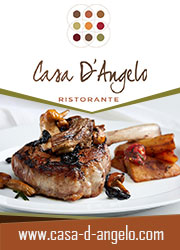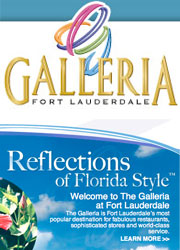 Jed is one of our best friends in the wine business. His career has spanned six decades in California, beginning in 1969 at Stony Hill Winery in Napa Valley.
Jed is one of our best friends in the wine business. His career has spanned six decades in California, beginning in 1969 at Stony Hill Winery in Napa Valley.
His mere presence is a bit intimidating; he's at 6 feet 6 inches tall, but when you shake his hand you know he's a pussy cat at heart.
The first time we ever saw Jed Steele he was plying his trade in the summer of 1979 for tiny Edmeades Winery in the laid-back Anderson Valley of Mendocino.
We didn't realize then that he already had a wealth of experience behind him -- his first job in winemaking was back in 1968 in the cellars of Fred and Eleanor McCrea at Stony Hill. In those days we thought Stony Hill was the best Chardonnay produced in America. Hard to believe that Jed has been making wine for more than five decades. He has probably made more fine wine than any other single winemaker in California -- certainly nobody understands the many diverse microclimates of California Chardonnay better than he.
Back in 1983 Jess Jackson, the founder and proprietor of Kendall-Jackson, knew exactly what he was doing when he hired Jed. Jackson decided to launch his venture with one of the very best talents in California.
Throughout the 1980's Kendall-Jackson and Jed Steele amazed us with an incredible array of high quality offerings -- reserve Chardonnays, Zinfandels, Cabernets, even late-harvest Rieslings -- that were as good as any produced in the state.
All the while, the winery churned out ever-increasing numbers of the "Vintner's Reserve" Chardonnay; during the Jed Steele era Kendall-Jackson's production of that wine soared from 9,000 cases to three quarters of a million cases annually.
Despite the enormous critical and commercial success, somewhere, somehow things went sour between Steele and Jess Jackson. There were rumors well over two years before Steele left the organization that he was unhappy with the corporate direction at Kendall-Jackson. Things had just become too big for him.
According to Steele, "There certainly is a degree of power and professional prestige in turning out six-figure boxes of good Chardonnay annually, but there is something about the days at Stony Hill that I felt I needed back. The touch, the feel, the intimate contact with the wine is necessary to me as a winemaker in the practice of my craft. I had lost this intimacy at Kendall-Jackson."
In August of 1990 Steele agreed to wind down his relationship with Kendall-Jackson and signed a consulting deal with the company for $400,000 . Jed would train the new winemaker and provide for an orderly transition.
On May 30, 1991, Jackson canned Steele and refused to pay the last $275,000 of the consulting contract. Steele sued, and Jackson countersued in what was one of the most acrimonious trials ever seen in normally serene Lake County. The combatants traded bitter charges and occasionally snapped at one another outside the courtroom, according to Santa Rosa's Press Democrat, which covered the trial.
Jackson won on his counterclaims that Steele interfered with Kendall-Jackson grower relations during his term of employment by negotiating grower contracts for the new Steele wines. Jackson also won on the claim that Steele had wrongfully revealed a "secret process" for making Chardonnay to Steele's new employer, Stimson Lane.
Stimson Lane, owners of Washington State's Chateau Ste. Michelle and Columbia Crest, are determined to turn their Napa Valley property, Villa Mt. Eden, into one of Kendall-Jackson's major competitors. Steele is now consulting with them to help them reach that objective.
The successful "secret process" counter charge was the most sensational news that came out of the trial. At first, many observers scoffed at the countercharge that there could be such a thing as a "secret process" in an industry noted for its openness and free exchange of ideas. When Kendall-Jackson's claim was upheld, many felt that it would have a chilling effect on the future trading of information among vintners.
Steele, incidentally, won the right to his additional $275,000, but observers labeled the trial a "draw," considering the fact Steele had to pay damages. Although Jess Jackson tried to paint the struggle between himself and Steele as a battle between a small, family-owned-and-operated operation (Kendall-Jackson) and a huge, multi-national company (Stimson Lane is owned by U.S. Tobacco), one could not help but be amused by the irony.
Kendall-Jackson is no small peanuts -- this winery (though family owned) is an aggressive, major player in the California wine scene. The little guys here, in my opinion, were Jed and Marie Steele -- good, modest folks with no well-heeled backers and only Jed's good name on the bottom line of the bank notes.
Despite being embroiled in a sensational trial, Jed Steele moved forward to open his own winery and get back in touch with wine. His first vintage (1991) debuted in 1993 to exceptional critical acclaim. Steele bottled a Chardonnay with a California appellation that was an amalgam of four of Jed's favorite vineyards; he also produced small separate bottlings (less than 200 cases of each) from several of those vineyards.
That first year Steele also took a big leap into the Pinot Noir business -- a surprising move because he had never made Pinot Noirs at Kendall-Jackson. It was probably more serendipity than design. The opportunity arose at harvest's end in 1991 to get some superb pinot noir fruit from the Durell Vineyard and the Sangiacomo Vineyard, and Jed seized the moment "just a little scared by it all."
The critical response to Steele's 1991 Carneros bottling and 1991 Sangiacomo bottling was extremely positive and encouraged him to make Pinot Noir an important part of his portfolio. (Steele now produces six different Pinot Noirs).
With the 1992 vintage Steele introduced his first Pinot Blanc from the famed Bien Nacido Vineyard in Santa Barbara (source of some legendary Chardonnays from Au Bon Climat and others). The first four vintages have been some of the finest Pinot Blancs produced in California. The Wine News selected both the 1993 and the 1994 as "Best of the Year." The recent 2004 is again outstanding.
In the last several years, Steele has added additional wines to the portfolio. Beginning with the '92 vintage Steele began producing about 1.000 cases of Zinfandel from the Pacini Vineyard in Mendocino, and the winery has released a DuPratt Zinfandel from the 1993 vintage. Jed first made Dupratt Zinfandel in 1974; his 1987 Kendall-Jackson Dupratt Zinfandel was the finest Zinfandel we have ever tasted and one of the greatest wines Jed has ever produced. Zinfandel, we might add, is Jed Steele's favorite wine.
Steele now produces excellent value wines under a second label called Shooting Star -- Steele's middle name is Tecumseh, the Indian Chief who was said to have drawn good luck from being born under a meteor of shooting stars.
























